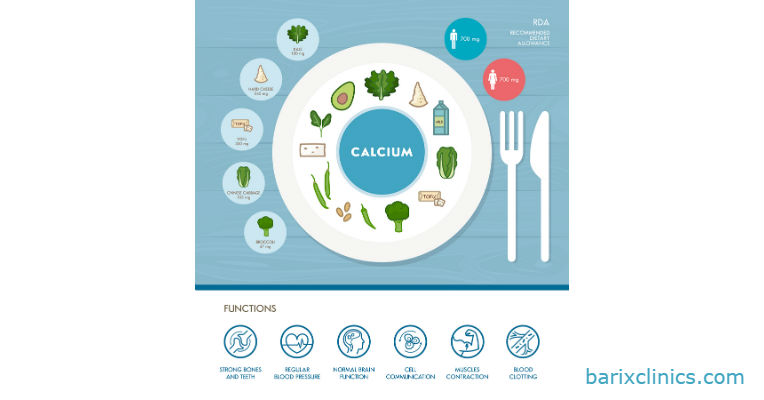Calcium
We often hear about calcium’s role in keeping our bones and teeth strong, but calcium has some other very important functions. Our bodies maintain a very tight range of calcium in the blood so that it is available for the maintenance of a regular heartbeat, transmission of nerve impulses and blood clotting. Recommendations after weight loss surgery are 1500 mg of calcium from a combination of food/beverage and supplement sources. Hypertension, osteoporosis, and metabolic bone disease can result from a deficiency.
Calcium is absorbed in the first section of the small intestine, the section bypassed with gastric bypass surgery. This can reduce the amount of calcium that is absorbed so it is important to insure an adequate intake from dietary or supplement sources.
If you’re not able to consistently obtain adequate calcium intake from your diet, supplementation is important. Common calcium supplements are calcium citrate or calcium carbonate. Either form can be an effective supplement, but there are some differences to consider.
- Calcium carbonate supplements are smaller in size and less expensive. Absorption is enhanced when taken with food.
- Calcium citrate is well absorbed in a non-acid environment, as occurs after gastric bypass and gastric sleeve surgeries, and can be taken with or without food. Pill size will be larger although chewable supplements are available.
Download On Track with Barix: Common Post-op Vitamin Deficiencies


